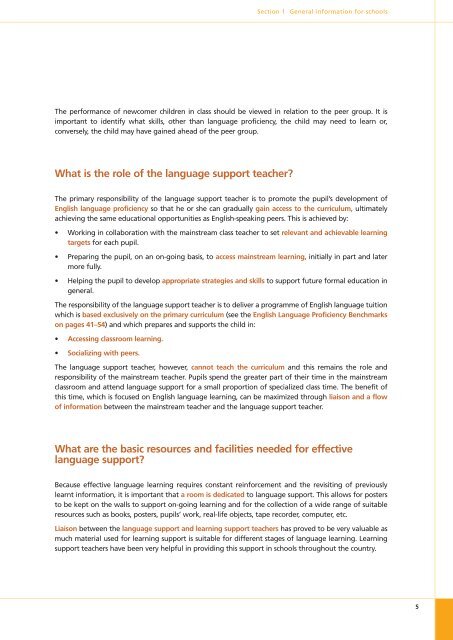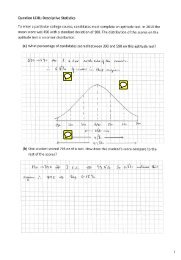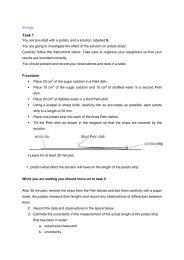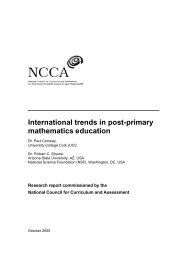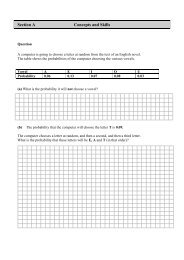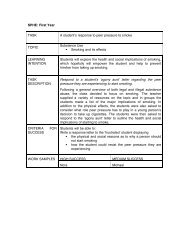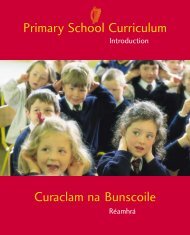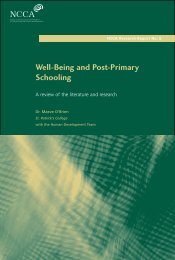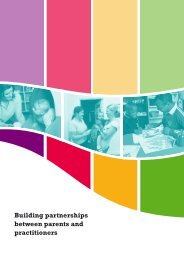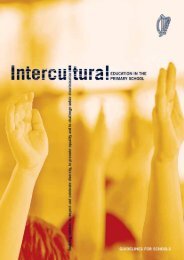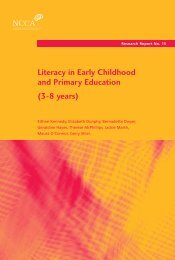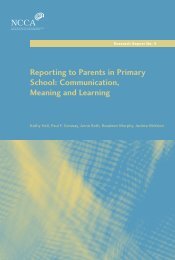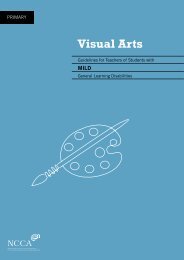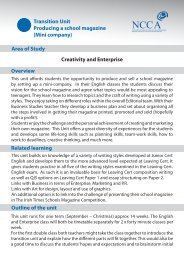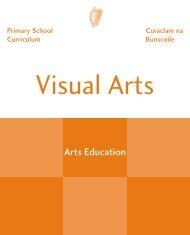Up and Away - National Council for Curriculum and Assessment
Up and Away - National Council for Curriculum and Assessment
Up and Away - National Council for Curriculum and Assessment
Create successful ePaper yourself
Turn your PDF publications into a flip-book with our unique Google optimized e-Paper software.
The per<strong>for</strong>mance of newcomer children in class should be viewed in relation to the peer group. It is<br />
important to identify what skills, other than language proficiency, the child may need to learn or,<br />
conversely, the child may have gained ahead of the peer group.<br />
What is the role of the language support teacher?<br />
The primary responsibility of the language support teacher is to promote the pupil’s development of<br />
English language proficiency so that he or she can gradually gain access to the curriculum, ultimately<br />
achieving the same educational opportunities as English-speaking peers. This is achieved by:<br />
Working in collaboration with the mainstream class teacher to set relevant <strong>and</strong> achievable learning<br />
targets <strong>for</strong> each pupil.<br />
Preparing the pupil, on an on-going basis, to access mainstream learning, initially in part <strong>and</strong> later<br />
more fully.<br />
Helping the pupil to develop appropriate strategies <strong>and</strong> skills to support future <strong>for</strong>mal education in<br />
general.<br />
The responsibility of the language support teacher is to deliver a programme of English language tuition<br />
which is based exclusively on the primary curriculum (see the English Language Proficiency Benchmarks<br />
on pages 41–54) <strong>and</strong> which prepares <strong>and</strong> supports the child in:<br />
Accessing classroom learning.<br />
Socializing with peers.<br />
Section 1 General in<strong>for</strong>mation <strong>for</strong> schools<br />
The language support teacher, however, cannot teach the curriculum <strong>and</strong> this remains the role <strong>and</strong><br />
responsibility of the mainstream teacher. Pupils spend the greater part of their time in the mainstream<br />
classroom <strong>and</strong> attend language support <strong>for</strong> a small proportion of specialized class time. The benefit of<br />
this time, which is focused on English language learning, can be maximized through liaison <strong>and</strong> a flow<br />
of in<strong>for</strong>mation between the mainstream teacher <strong>and</strong> the language support teacher.<br />
What are the basic resources <strong>and</strong> facilities needed <strong>for</strong> effective<br />
language support?<br />
Because effective language learning requires constant rein<strong>for</strong>cement <strong>and</strong> the revisiting of previously<br />
learnt in<strong>for</strong>mation, it is important that a room is dedicated to language support. This allows <strong>for</strong> posters<br />
to be kept on the walls to support on-going learning <strong>and</strong> <strong>for</strong> the collection of a wide range of suitable<br />
resources such as books, posters, pupils’ work, real-life objects, tape recorder, computer, etc.<br />
Liaison between the language support <strong>and</strong> learning support teachers has proved to be very valuable as<br />
much material used <strong>for</strong> learning support is suitable <strong>for</strong> different stages of language learning. Learning<br />
support teachers have been very helpful in providing this support in schools throughout the country.<br />
5


